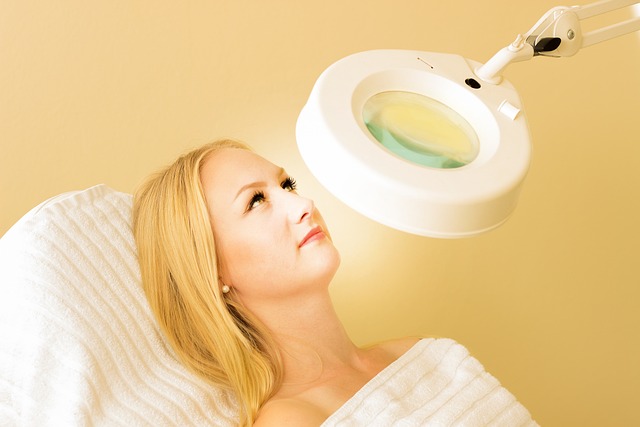As women transition into post-menopause, the changes in their bodies can be profound, particularly concerning skin health. The decline in estrogen levels during this phase significantly affects skin appearance and texture. Understanding these changes and how to address them with natural supplements can help women maintain healthy and vibrant skin during post-menopause.
How Post-Menopause Affects Skin Health
The most significant factor influencing skin health post-menopause is the reduction in estrogen production. Estrogen is crucial in maintaining the skin’s structure, moisture, and elasticity. As estrogen levels drop, the skin undergoes several changes:
- Decreased Skin Moisture: Estrogen helps retain moisture in the skin by increasing acid mucopolysaccharides and hyaluronic acid levels. These substances are essential for keeping the skin hydrated, and their decline can lead to dryness and rough texture, which are common complaints among post-menopausal women.
- Loss of Collagen and Elastin: Estrogen is vital for collagen production, the protein that gives skin strength and elasticity. Post-menopausal women can lose up to one-third of their collagen within the first five years after menopause, leading to sagging skin and deeper wrinkles. The breakdown of elastin, the protein responsible for the skin’s ability to return to its original shape, further exacerbates these issues.
- Increased Wrinkling: The combined loss of collagen and elastin and decreased skin moisture contribute to more pronounced wrinkles. The skin becomes less resilient, leading to the formation of fine lines and a more aged appearance.
- Slower Wound Healing: Estrogen also affects the skin’s ability to heal. Lower estrogen levels can slow wound healing, making the skin more prone to long-lasting scars and imperfections.
Natural Solutions to Support Post-Menopausal Skin Health
While hormone replacement therapy (HRT) is an option, many women prefer to explore natural solutions to support their skin health during post-menopause. Here are some effective natural supplements that can help mitigate the effects of estrogen decline:
- Amla (Indian Gooseberry): Amla is known for its powerful antioxidant properties and its ability to enhance collagen production. By improving collagen metabolism, Amla helps maintain skin firmness and reduce the appearance of wrinkles.
- Astaxanthin: This carotenoid is a potent antioxidant that helps improve skin elasticity, reduce fine lines, and protect the skin from UV-induced damage. Astaxanthin is also known for increasing skin moisture, making it an excellent supplement for combating dryness.
- Ceramides: Ceramides are essential lipids that help maintain the skin’s barrier function, which is crucial for retaining moisture and protecting against environmental damage. Supplementing with ceramides can improve skin hydration and smoothness.
- Collagen Peptides: Collagen peptides are small, easily absorbed proteins that can boost the skin’s collagen levels, improving skin hydration and elasticity and reducing the depth of wrinkles.
- Hyaluronic Acid (Dermial®): Hyaluronic acid is a naturally occurring substance in the skin that retains water, keeping the skin hydrated and plump. Dermial® is a specific form of hyaluronic acid that stimulates collagen and elastin production, enhancing skin elasticity and firmness.
- Nutroxsun®: A blend of Mediterranean rosemary and grapefruit extracts, Nutroxsun® has been shown to protect the skin from UV damage, reduce wrinkle depth, and improve skin elasticity.
- Red Orange Complex: This supplement, derived from Moro Tarocco and Sanguinello oranges, has been shown to protect the skin from UV-induced erythema and hyperpigmentation while improving skin moisture and elasticity.
- Probiotics: Emerging research suggests that the gut-skin axis plays a significant role in skin health. Probiotics help maintain a healthy balance of gut bacteria, which can positively influence skin hydration and barrier function and reduce signs of aging.
The transition to post-menopause presents several challenges to maintaining skin health. The decline in estrogen leads to significant changes, including decreased moisture, loss of collagen and elastin, and increased wrinkling. However, with the right natural supplements, women can support their skin during this phase, helping to maintain a healthy, youthful complexion. By incorporating supplements like Amla, Astaxanthin, Ceramides, and Probiotics into their daily routines, post-menopausal women can effectively address the skin-related effects of menopause.
References
- Farrar, M. D., Nicolaou, A., Clarke, K. A., Mason, S., Massey, K. A., Dew, T. P., … & Rhodes, L. E. (2015). A randomized controlled trial of green tea catechins in protection against ultraviolet radiation-induced cutaneous inflammation. The American Journal of Clinical Nutrition, 102(2), 608-615. doi:10.3945/ajcn.115.112615
- Proksch, E., Schunck, M., Zague, V., Segger, D., Degwert, J., & Oesser, S. (2014). Oral intake of specific bioactive collagen peptides reduces skin wrinkles and increases dermal matrix synthesis. Skin Pharmacology and Physiology, 27(3), 113-119. doi:10.1159/000355523
- Lee, J. Y., Kim, Y. S., Shin, K. O., & Noh, S. K. (2017). Ceramide and natural moisturizing factor contents in the stratum corneum for clinically healthy subjects. Journal of Cosmetic Science, 68(5), 437-446.
- Parvez, S., Kang, M., Chung, H. S., & Bae, H. (2006). Naturally occurring tyrosinase inhibitors: Mechanism and applications in skin health, cosmetics, and agriculture. Phytotherapy Research, 21(9), 805-816. doi:10.1002/ptr.2182
- Bowman, A., & Birch-Machin, M. A. (2016). Ageing and the Clocks That Control the Ageing Process. Journal of Investigative Dermatology, 136(4), 811-815. doi:10.1016/j.jid.2016.01.020
- Chen, W., Zhao, S., Lee, Y., & Youn, S. W. (2021). Gut-Skin Axis: The Relationship between Gut Microbiome and Skin Health. Journal of Dermatological Science, 103(2), 103-113. doi:10.1016/j.jdermsci.2021.07.009
- Kim, Y. G., Park, S. H., Lee, J. S., & Kim, J. M. (2021). Oral Probiotic Supplementation Improves Skin Hydration, Elasticity, and Reduces Wrinkles in Aged Mice. Journal of Microbiology and Biotechnology, 31(1), 22-29. doi:10.4014/jmb.2008.08013


